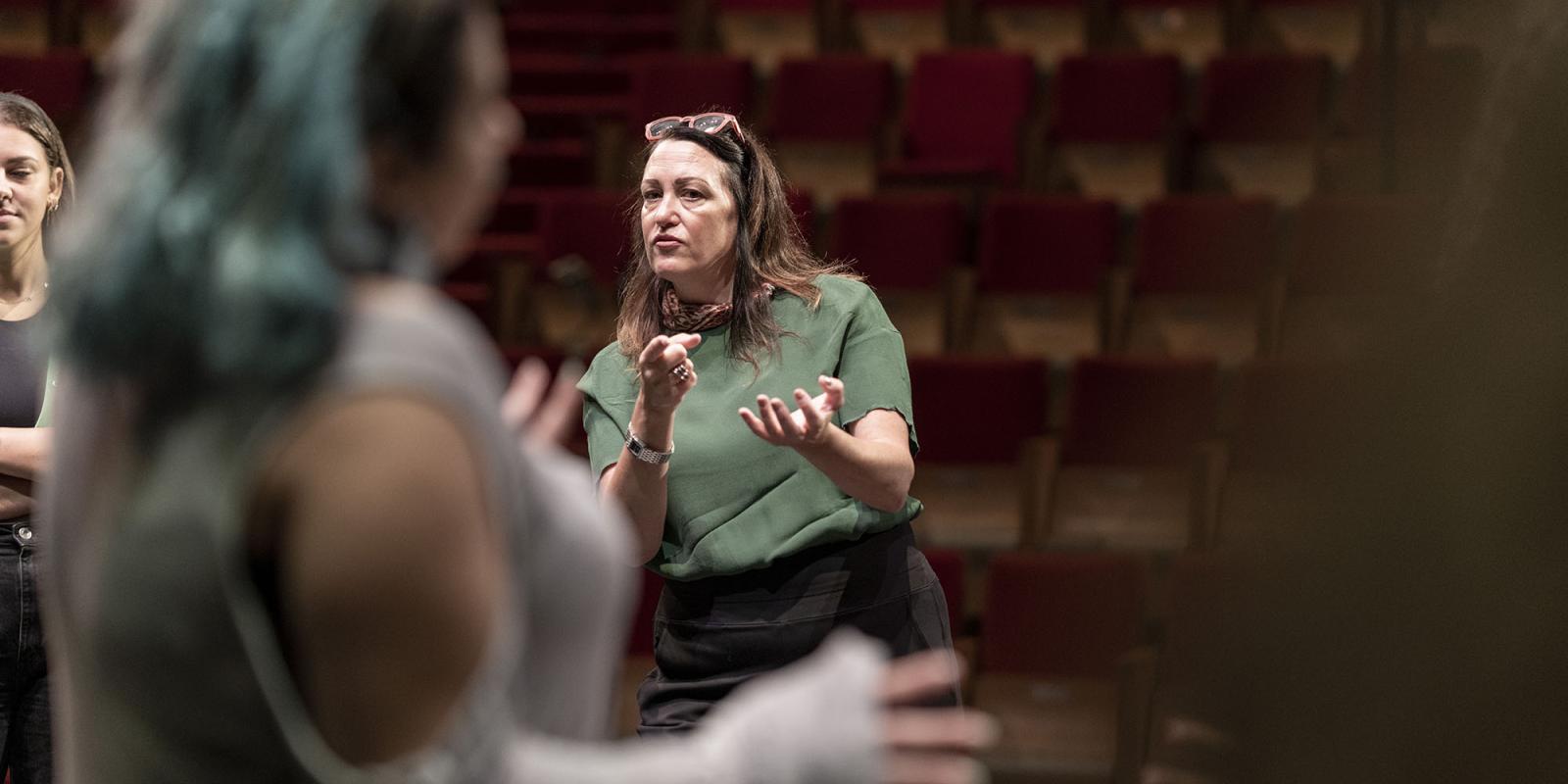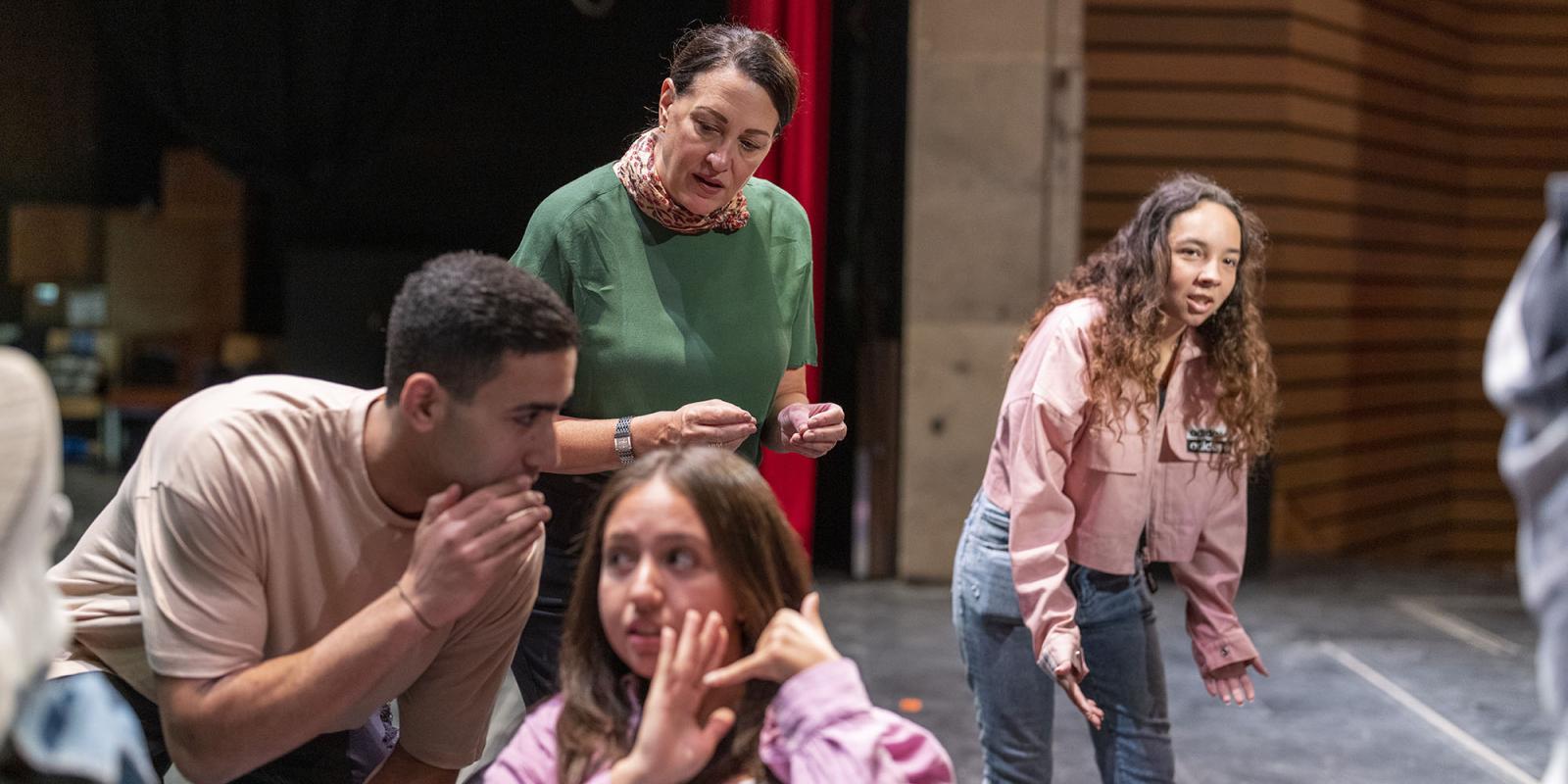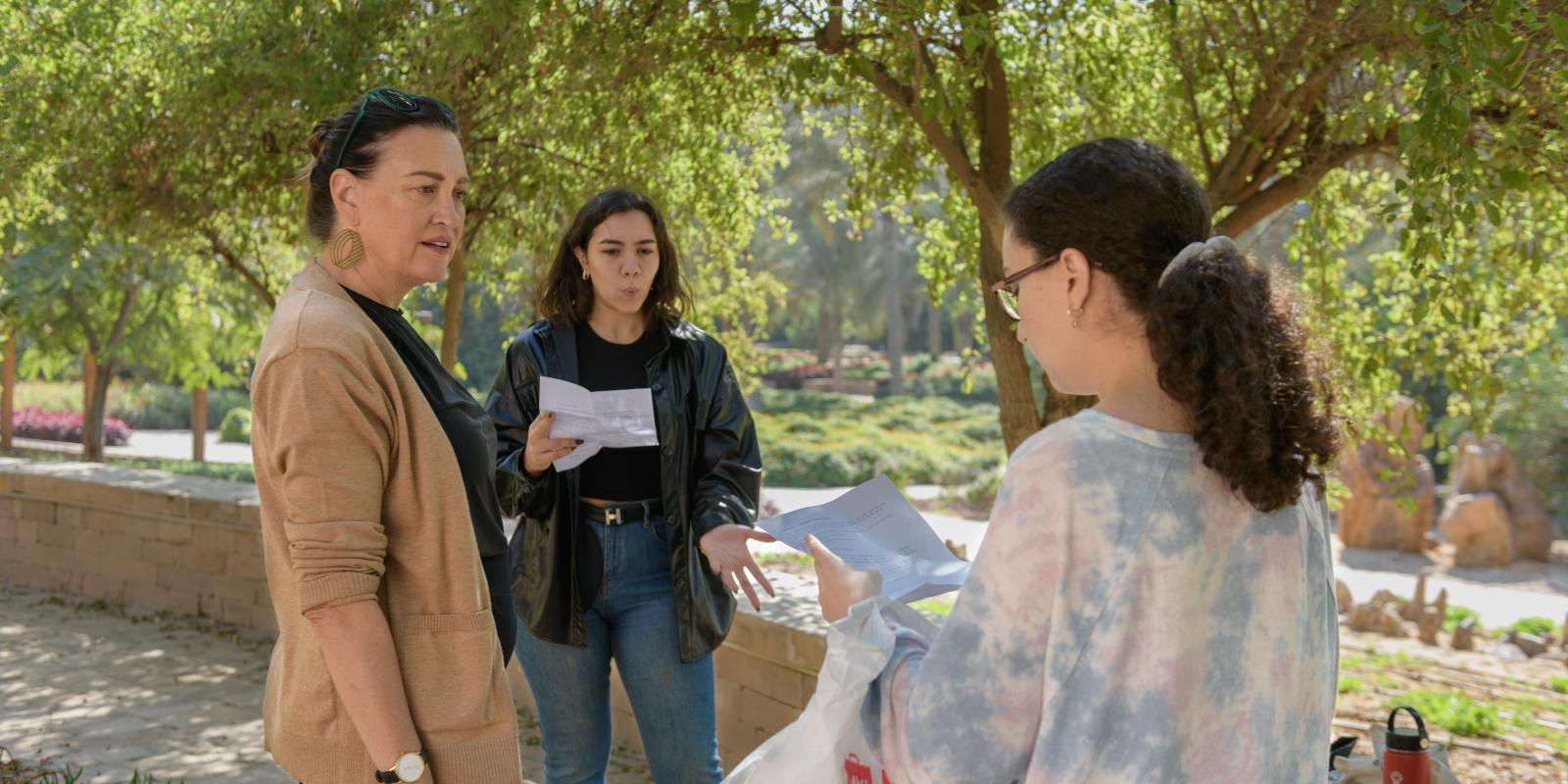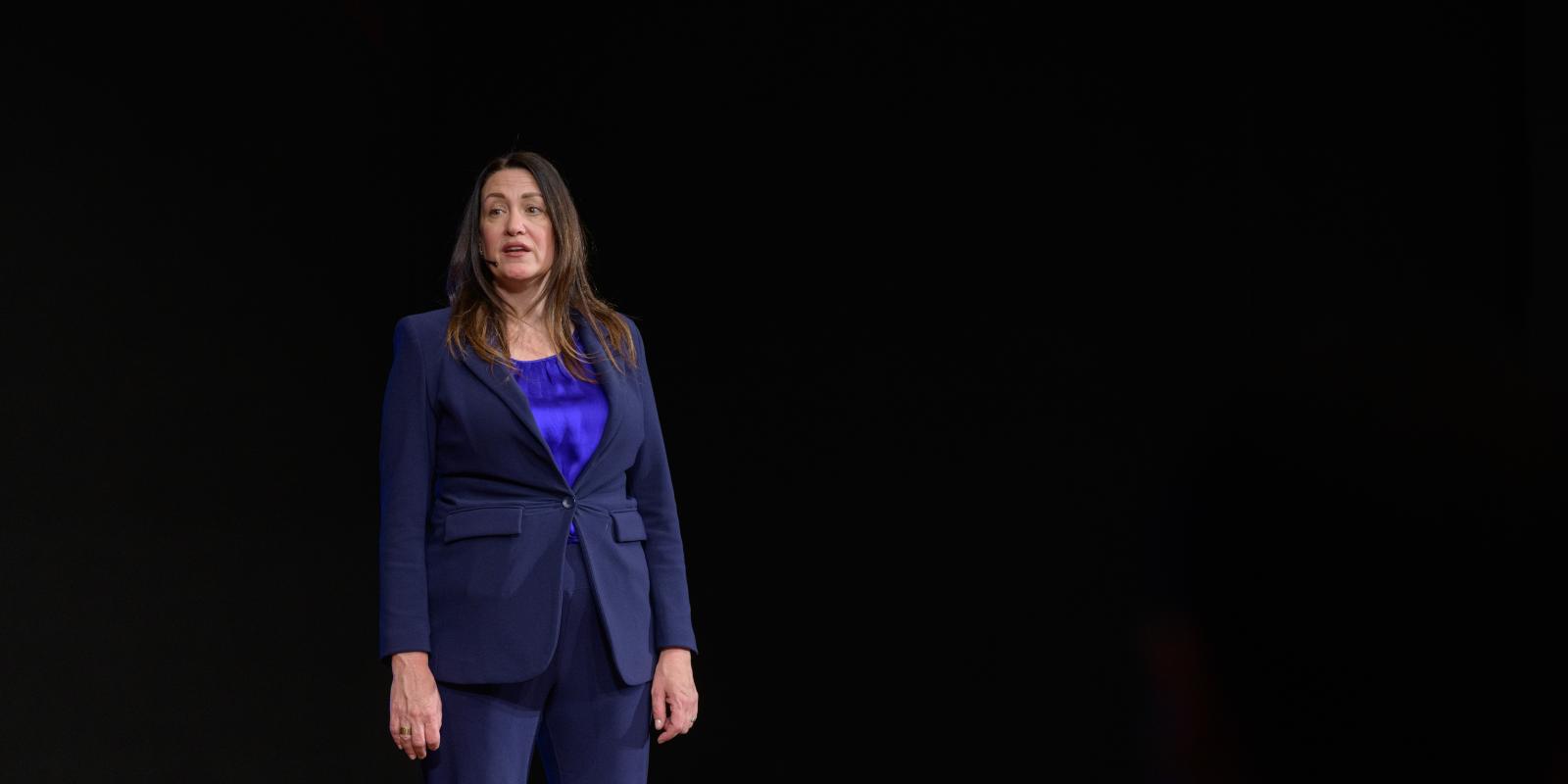
Sexual Harassment Education: How Different Are We?
Recently honored by Times Higher Education for the Msh Zanbik project, Professor Jillian Campana examines cross-cultural differences in sexual harassment education, focusing on Egypt and the United States, and the importance of theatre as a powerful medium to invoke change and heal from trauma.
Estimated to affect more than 90% of Egyptian women and 1 in 3 women worldwide, sexual harassment is an experience that an unconscionable amount of people share. A global issue, Jillian Campana, theatre professor and associate dean for undergraduate studies at AUC’s School of Humanities and Social Sciences, explores how sexual violence is addressed in Egypt and the United States in order to better understand effective education, support systems and forms of redress.
Addressing sexual violence in both countries highlights challenges that intersect cross-culturally. “The question we tackled was, ‘How different are we?’ and the answer we arrived at was ‘Not very different at all,’' says Campana. “Our cultures are very distinct, but the reasons why people commit crimes of sexual violence and the ways that they’re addressed are incredibly similar. They may appear different because of culture and legislation, but the dynamics are parallel.”
Campana's work in both the United States and Egypt has had an impact on and off stage, exploring using performance to help individuals process and heal from trauma. Her projects have included a 12-year research effort helping brain injury survivors rewire neural pathways via movement and speech exercises, working with U.S. military veterans to use playwriting to navigate post-traumatic stress disorder, and a creative research project in India and the Philippines helping survivors of sexual trafficking build skills for the workplace. Her work as a professor at the University of Montana included using theatre as a tool for anti-sexual harassment training, and she was a faculty mentor to actress Lily Gladstone, winner of a Golden Globe Award, as she studied theatre and social justice.

The Role of Context
When it comes to education and effectively addressing sexual violence, the importance of cultural context and language can’t be overstated.
“There’s this very powerful play called The Wolves by American playwright Sarah DeLappe about a female college soccer team navigating teen girlhood, including experiences with sexual violence. I first thought about performing this show at AUC. But it doesn't work at all — nothing that happens in that play fits our context,” Campana says.
While trying to navigate how they could adjust The Wolves to resonate with AUC, Campana and her students quickly realized that it wouldn’t work to adapt something created for a completely different environment and culture. Unable to find an alternative, it became clear there was a gap that needed to be addressed. “There were very limited resources on sexual violence: There’s a high-profile film called 678 and a few educational videos made for workplaces, but overall, there’s a pronounced lack of nuanced information, especially in Arabic,” Campana says.
This led to the formation of Msh Zanbik, a research project led by Campana and Dina Amin ‘84, associate professor and director of the theatre program, that culminated in a collection of short plays written by students. Wrestling with topics surrounding sexual violence grounded in an Egyptian context, the plays were produced in both Arabic and English and performed at AUC.
The Effect of Msh Zanbik
The plays hold the potential for a wide impact: released royalty-free, Campana hopes they will be dispersed, examined, discussed, reimagined and tailored to suit whatever context they’re performed in.
“Through being involved with Msh Zanbik, students are identifying and examining dynamics around sexual violence in a way that helps them prepare for encountering these situations,” Campana says.

The involvement of students — placing the definitions and conversations in their hands — is crucial in localizing resources and making anti-sexual violence initiatives effective. “You can make students participate in hegemonic anti-sexual violence trainings, but it’s proven to be inneffective,” Campana says. “A lot of the training isn’t relevant to their context because it’s not coming from the students themselves who have the lived experience and are the experts on what it looks like in their communities. They need to be supported in defining the problem themselves.”
With this goal in mind, Campana also worked with students and the Office of Institutional Equity and Title IX Director Reem El-Mograby ‘09 to produce three short videos in Arabic and English to be used by the Office of Institutional Equity as tools for anti-sexual harassment training. The videos involved students, alumni, staff and faculty, focusing on educating students about defining sexual harassment, making a difference in their communities and empowering them to report issues. The videos also seek to capture some of the more subtle forms of sexual harassment like staring, seemingly friendly and casual touch and second hand comments. Most students will see these videos as part of their freshman year orientation, followed by smaller group discussions to contextualize the scenarios.
"I am very proud that AUC has taken the lead in this area. There is not a single college or university that is immune to this issue and it takes courage to lead this conversation and to lead it in this region," Campana adds.

International Recognition
Msh Zanbik was awarded the Research Project of the Year: Arts, Humanities and Social Sciences award from Times Higher Education, a feat which, for Campana, highlights the University’s role as a leader in the region when it comes to teaching about sexual violence. “It also reinforces the arts as a powerful medium to invoke change and theatre as an opportunity to rehearse for reality. We can practice behaviors, ways of thinking and language in what is a bit of a liminal space and eventually go out into the real world and apply what we’ve learned there,” Campana says.
Campana hopes that with time and projects like Msh Zanbik, more people in Egypt and beyond will be informed and empowered when it comes to sexual violence, helping to mitigate social barriers to accessing institutional support that regulations can’t address, like stigma and retaliation.
“Theatre is a community event, and these conversations need to be happening publicly,” Campana says. “It’s important for everyone to get involved however they can and become the experts on addressing this in their own context and community.”
To seek support regarding or report experiences of sexual harassment and assault on campus, visit the Office of Institutional Equity's webpage.
